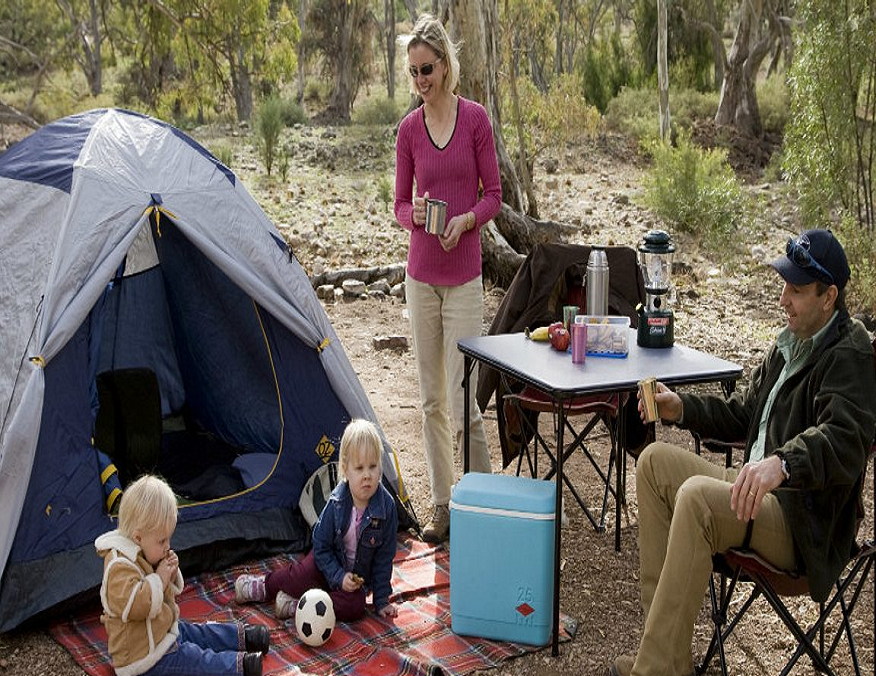Camping is a popular outdoor activity enjoyed by millions of people around the world. It offers a chance to connect with nature, unwind from the daily routine, and create lasting memories with loved ones. However, amidst the excitement and adventure, it is crucial to prioritize safety and security to ensure a pleasant and worry-free camping experience.
Nature, with all its beauty and serenity, can also present potential risks and hazards. From unpredictable weather conditions to encounters with wildlife, being prepared and taking necessary precautions is essential. Here are some key reasons why ensuring safety and security while camping is of utmost importance:
1. Personal Well-being:
The primary concern when camping should always be the well-being of oneself and fellow campers. By prioritizing safety measures, you reduce the chances of accidents, injuries, or illnesses. This includes packing appropriate first aid supplies, knowing how to handle emergency situations, and being aware of any health conditions that may require special attention while outdoors.
2. Weather Awareness:
Weather conditions can change rapidly, especially in outdoor environments. Monitoring weather forecasts before and during your camping trip is crucial. Familiarize yourself with the signs of approaching storms, high winds, or extreme temperatures. Ensure you have adequate shelter and clothing to stay protected from the elements and seek shelter if necessary.
3. Campsite Selection:
Choosing the right campsite plays a significant role in ensuring safety. Look for established campsites that have been designated for camping, as they usually offer amenities like fire pits, restrooms, and cleared areas. Avoid setting up camp near dead trees, cliffs, or bodies of water that could pose potential risks. Research the area for any specific safety concerns or local regulations.
4. Fire Safety:
Campfires are an integral part of the camping experience for many, but they can also be hazardous if not handled responsibly. Follow all fire safety guidelines, including keeping a safe distance from flammable materials, using designated fire rings or pits, and fully extinguishing the fire before leaving. Additionally, be aware of any fire restrictions or bans in the area due to drought or other environmental factors.
5. Wildlife Awareness:
Encounters with wildlife can be awe-inspiring, but it is crucial to maintain a safe distance and respect their natural habitat. Learn about the local wildlife species that inhabit the camping area and understand how to respond if you encounter them. Store food securely to avoid attracting animals and follow proper waste disposal practices to minimize the risk of unwanted wildlife interactions.
6. Personal Security:
While camping in remote areas can provide solitude and a sense of tranquility, it is important to consider personal security. You can carry latest gun with 12 gauge ammo for self-defense. Always inform someone trustworthy about your camping plans, including your expected duration and location. Avoid camping alone if possible, but if you do, take extra precautions. Lock your belongings and keep valuables out of sight to minimize the risk of theft.
7. Equipment and Gear:
Before embarking on a camping trip, ensure that all your equipment and gear are in good working condition. Inspect tents for tears or damage, test camping stoves and lanterns for proper functionality, and ensure that sleeping bags and clothing are suitable for the expected weather conditions. It is also essential to carry essential items such as flashlights, extra batteries, maps, and a reliable communication device in case of emergencies.
8. Leave No Trace:
Respecting the environment and leaving no trace of your presence is a fundamental principle of responsible camping. Pack out all your trash and dispose of it properly. Follow established trails, avoid damaging plants or wildlife habitats, and use biodegradable soaps for washing dishes or bathing. By practicing Leave No Trace principles, you contribute to the preservation of nature for future generations to enjoy.
Conclusion:
In conclusion, while camping is a wonderful opportunity to connect with nature and create lasting memories, ensuring safety and security should never be overlooked. By prioritizing personal well-being, being prepared for weather conditions, choosing appropriate campsites, practicing fire safety, respecting wildlife, considering personal security, maintaining gear in good condition, and practicing Leave No Trace principles, you can enhance your camping experience while minimizing potential risks. Remember, responsible camping ensures that both you and the environment can continue to thrive harmoniously.

